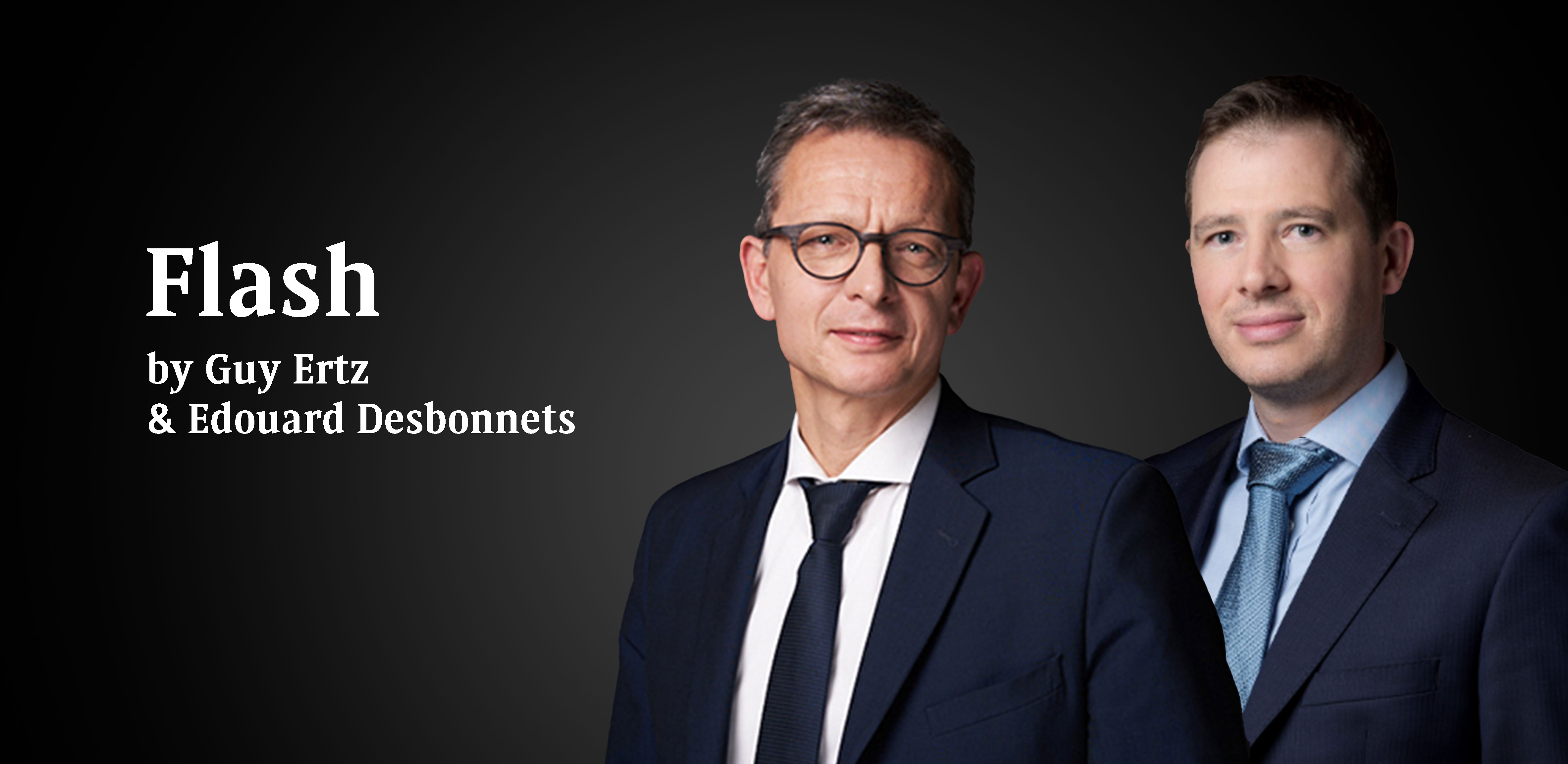Transcript
SPEAKER: Guy Ertz
Hi, I'm Guy Ertz, Deputy Chief Investment Officer, BNP Paribas Wealth Management. Today we'll talk about euro high yield corporate bonds. What is driving their performance? What are the risks ahead and how do they compare to euro investment grade and US high yield bonds? To answer these questions we're joined by my colleague, Edouard Desbonnets, Senior Investment Strategist, Fixed Income. Hello, Edouard.
SPEAKER: Edouard Desbonnets
Hello Guy.
SPEAKER: Guy Ertz
Let's start with last year. 2024 was a fantastic year for euro high yield corporate bonds. But what made it stand out? What made it such a good year?
SPEAKER: Edouard Desbonnets
Indeed it was a very strong year: 8.1%. That's the total return for euro high yield corporate bonds last year. So that's quite remarkable. The main driver was the spread compression, which then indicated that the perception of risk has decreased a lot. The economic backdrop also really helped. You know that inflation in the eurozone fell sharply, so the ECB could start cutting rates and therefore it reduced the liquidity risks and made high yield corporate bonds more attractive. And finally, let's not forget demand. All-in yields last year were at very attractive levels. And we saw record demand for high yield bonds coming from retail investors. So it was actually a perfect mix of favourable conditions for high yield corporate bonds.
SPEAKER: Guy Ertz
So let's move onto 2025. Now it seems that the environment is more complex. So what is your take on the outlook for euro high yield corporate bonds this year?
SPEAKER: Edouard Desbonnets
I think it should deliver decent return, but probably not in the same order of magnitude as last year. I'll give you three reasons. The first one is technical support for the market could actually weaken. You know, last year we had limited net bond issuance, which made high yield corporate bonds relatively scarce. But in 2025, we're expecting net supply to turn positive, which should put downward pressure on prices. Second, corporate fundamentals are still very solid overall, but there is a growing concern. Economic growth in the eurozone is expected to be sluggish and credit quality in the asset class has been deteriorating a bit over the past quarters. We saw more downgrades than upgrades coming from rating agencies. And finally, a third reason: the broader economic environment remains uncertain. Political tensions within the eurozone and global trade risks could also create more volatility.
SPEAKER: Guy Ertz
So one bright spot, it seems, is the low default rate in Europe. Do you think that will continue?
SPEAKER: Edouard Desbonnets
It's quite likely. And that's one of the positives for Euro high-yield corporate bonds. Defaults have been very rare. The 12-month default rate is just 0.3%. And even with some economic challenges ahead of us, we expect it to rise to only 1.5% in 2025. So that's still very low by historical standards. So defaults are not really a concern. What we are watching closely, however, and are more concerned about is valuations, because valuations are very tight. So that means there's not so much room for spreads to compress further. You know, the average spread on the asset class is around 300 basis points. That's 260 basis points lower than the historical average. And spreads are actually tight across most of the credit spectrum. If you look at BB-rated bonds, they are trading at 200 basis points below their historical average. B-rated bonds are 300 basis points below and only the lowest-rated segments, so C rated bonds, are trading in line with their historical average. So this to us suggests that the market is already pricing a lot of optimism. Valuations are tight. Dispersion is likely to increase. So that makes bond selection even more important now. As for expected returns, you know, we can't really rely on spread compression anymore. So the total return will come from carry which is actually the income you earn by holding the bond. And in terms of number, I mean, if we forecast a modest spread widening of 25 basis points, that should give us an expected return for this year, 2025, at around 4.7%.
SPEAKER: Guy Ertz
Okay. So let's compare now euro high yield corporate bonds to other markets within fixed income. So how does this market compare to other similar markets like euro investment grade bonds or US investment grade bonds or US high yield bonds?
SPEAKER: Edouard Desbonnets
Well, we think that investment grade corporate bonds are actually a solid alternative for conservative investors, both in euros and dollars. In the eurozone, they offer similar expected returns than high yield. It's about 4.4% for investment grade, compared to 4.7% for high yield. But of course with much lower volatility for investment grade bonds. So for someone looking for stability that's a great option. For US investment grade corporate bonds, we forecast an expected return at around 7%. So it's better than the euro equivalent, but with more volatility than euro investment grade corporate bonds. And as for us high yield corporate bonds valuations are even tighter than euro high yield corporate bonds. They tend to be riskier, but with higher default rates. But that said, the US economy is growing faster than in the eurozone, which supports their credit markets, and we calculated an expected return at around 5.5% for 2025.
SPEAKER: Guy Ertz
Okay. Let me summarize here. So first there is a limited potential for further spread compression. So the carry will be king and will be actually the main source of return this year. Second, we need to be selective because valuation at index levels are relatively tight. And finally, don't overlook alternatives. Euro and US dollar investment grade bonds offer attractive risk return trade-offs.
Thank you to our audience for listening to this podcast. If you enjoyed this podcast, don't hesitate to like, share and subscribe to our channel on all streaming platforms including Apple Podcast, Podcast Addict and Spotify. For more content, feel free to visit our website, BNP Paribas Wealth Management. Thank you.


